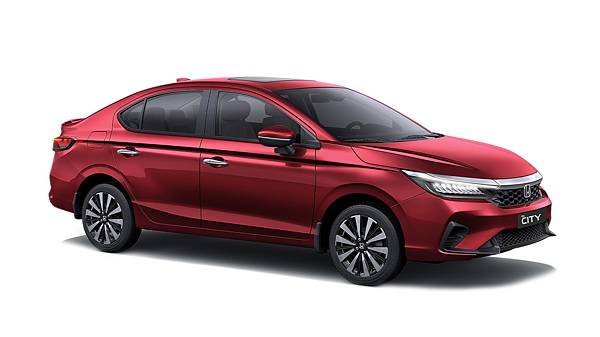
Definition of Sedan
A sedan is a type of passenger car that typically has four doors and a separate trunk for cargo storage. It is characterized by its closed body style, which provides a more enclosed and comfortable interior for passengers compared to other car types like coupes or hatchbacks. Sedans usually have seating capacity for four to five passengers and are known for their practicality, comfort, and smooth driving experience.
Characteristics of Sedans
Characteristics of Sedans:
1. Body Style: Sedans have a traditional and classic body style with a separate trunk compartment. They typically have four doors, with seating for five passengers. Sedans have a longer roofline that extends to the rear, providing ample headroom for both front and rear passengers.
2. Size and Dimensions: Sedans come in various sizes, ranging from compact to full-size models. The overall dimensions of a sedan can vary, but they generally have a length of around 4.5 to 5 meters, width of 1.7 to 1.9 meters, and height of 1.4 to 1.6 meters. These dimensions contribute to the sedan’s spacious interior.
3. Comfort and Space: Sedans are known for offering a comfortable and luxurious driving experience. They typically have generous legroom and headroom for both front and rear passengers. Sedans also provide ample storage space in the trunk for luggage and other items.
4. Safety: Sedans are engineered with safety in mind, often equipped with advanced safety features such as airbags, anti-lock braking systems (ABS), stability control, traction control, and rearview cameras. Many sedans also offer advanced driver-assistance systems (ADAS) like lane-keeping assist, blind-spot monitoring, and forward collision warning.
5. Fuel Efficiency: Sedans are generally known for their fuel-efficient nature. With advancements in technology, many sedans now offer hybrid or electric powertrain options, further enhancing their fuel efficiency and reducing emissions.
6. Handling and Performance: Sedans are designed for a comfortable and smooth ride, offering balanced handling and good stability on the road. They often come with front-wheel drive (FWD) or all-wheel drive (AWD) systems, which enhance the vehicle’s traction and control.
7. Affordable Maintenance: Sedans are generally more affordable to maintain compared to other vehicle types like SUVs or sports cars. They typically have lower costs for routine maintenance, repairs, and insurance.
8. Versatility: Sedans are versatile vehicles suitable for a wide range of uses, from daily commuting to family transportation. They offer a good balance of performance, comfort, and practicality.
Overall, sedans are popular for their comfortable interiors, safety features, fuel efficiency, and versatility, making them a popular choice among car buyers.
History of Sedans
The history of sedans can be traced back to the early days of automobiles. The term “sedan” originally referred to a type of carriage that had a separate enclosed compartment for the passengers, distinct from the driver. This concept was later adapted to the design of automobiles.
In the early 20th century, sedans began to gain popularity as they provided more comfort and protection to passengers compared to open-top cars. These early sedans typically featured a closed body design, with multiple rows of seats and a separate trunk space in the rear.
In the 1920s and 1930s, automakers started to experiment with various sedan configurations and designs. Some sedans had a three-box design, with separate compartments for the engine, passengers, and luggage. Others featured a fastback design, which had a streamlined shape and a continuous sloping roofline.
During the mid-20th century, sedans became the dominant body style in the automotive industry. Various automakers introduced their own sedan models, each with unique designs and features. Sedans became a symbol of status and class, often associated with luxury and comfort.
In the 1970s and 1980s, sedans went through a period of downsizing due to the oil crisis and changing consumer preferences. Automakers began introducing smaller and more fuel-efficient sedans, often with front-wheel drive and more compact dimensions.
With the rise of SUVs and crossovers in recent decades, the popularity of sedans has somewhat declined. However, sedans continue to be a significant segment of the automotive market, offering a balance between practicality, comfort, and style.
Today, sedans come in a wide range of sizes, from compact sedans suitable for urban environments to large full-size sedans offering spacious interiors. They feature advanced technologies, safety features, and efficient engines, catering to the evolving demands of consumers.
Overall, the history of sedans showcases the evolution of automotive design, reflecting changes in technology, consumer preferences, and societal tastes throughout the years.
Advantages and Disadvantages of Sedans
Advantages of Sedans:
1. Spaciousness: Sedans typically have more interior space compared to other vehicle types, offering ample legroom and headroom for both the driver and passengers.
2. Comfort: Sedans are designed with comfort in mind, providing a smooth and comfortable ride due to their sophisticated suspension systems and well-insulated cabins.
3. Fuel Efficiency: Sedans are generally more fuel-efficient than larger vehicle types, thanks to their lighter weight and more streamlined design that reduces drag.
4. Maneuverability: Sedans are easy to handle and maneuver, especially in crowded city streets and parking lots, making them ideal for urban driving.
5. Safety: Sedans often come equipped with advanced safety features such as airbags, anti-lock braking systems, stability control, and collision avoidance technologies, ensuring better protection for occupants in case of an accident.
6. Versatility: Sedans offer a generous trunk space with a separate enclosed storage area, providing ample room to carry luggage, groceries, or other belongings.
Disadvantages of Sedans:
1. Limited cargo space: While sedans have decent trunk space, they may not provide enough room for larger items such as furniture or sporting equipment.
2. Reduced off-road capability: Sedans usually have lower ground clearance, limiting their ability to tackle rough terrains or off-road conditions.
3. Less headroom for rear passengers: Sedans often have a sloping roofline, which can reduce headroom for taller passengers sitting in the rear seats.
4. Less seating capacity: Sedans typically have seating for up to five passengers, making them less suitable for larger families or groups.
5. Limited towing capacity: Due to their lighter weight and design, sedans generally have a lower towing capacity compared to larger vehicles like SUVs or trucks.
6. Limited visibility: The sleek design of sedans may result in narrower windows and blind spots, potentially reducing visibility for the driver.
Popular Sedan Models
There are many popular sedan models available on the market. Some of the most well-known sedans include:
1. Honda Accord: Known for its reliability and comfortable driving experience, the Honda Accord is a popular choice among sedan buyers. It offers a spacious interior, advanced safety features, and efficient engine options.
2. Toyota Camry: The Toyota Camry is another top-selling sedan that offers a smooth ride, fuel efficiency, and a reputation for long-lasting quality. It provides a comfortable cabin, modern technology, and a wide range of trim levels and engine choices.
3. Nissan Altima: The Nissan Altima is a stylish and practical sedan that offers a comfortable ride, good fuel economy, and plenty of interior space. It features modern tech and safety features, making it a popular choice for daily commuting or long trips.
4. Ford Fusion: The Ford Fusion is a midsize sedan that combines practicality with sporty styling. It offers a comfortable interior, a variety of engine options (including hybrid and plug-in hybrid models), and a smooth ride.
5. Volkswagen Passat: The Volkswagen Passat is a refined and spacious sedan that offers a comfortable and composed driving experience. It provides a classy interior, advanced safety features, and an available range of engine options.
6. Hyundai Sonata: The Hyundai Sonata is a reliable and value-packed sedan that offers a comfortable ride and a feature-rich interior. It provides a range of engine choices, user-friendly technology, and good fuel economy.
7. Kia Optima: The Kia Optima is a stylish and well-equipped sedan that offers a comfortable cabin and a smooth ride. It features modern tech and safety features, making it a popular choice among car buyers.
These are just a few examples of popular sedan models, and there are many more options available from various automakers to suit different tastes and preferences.
